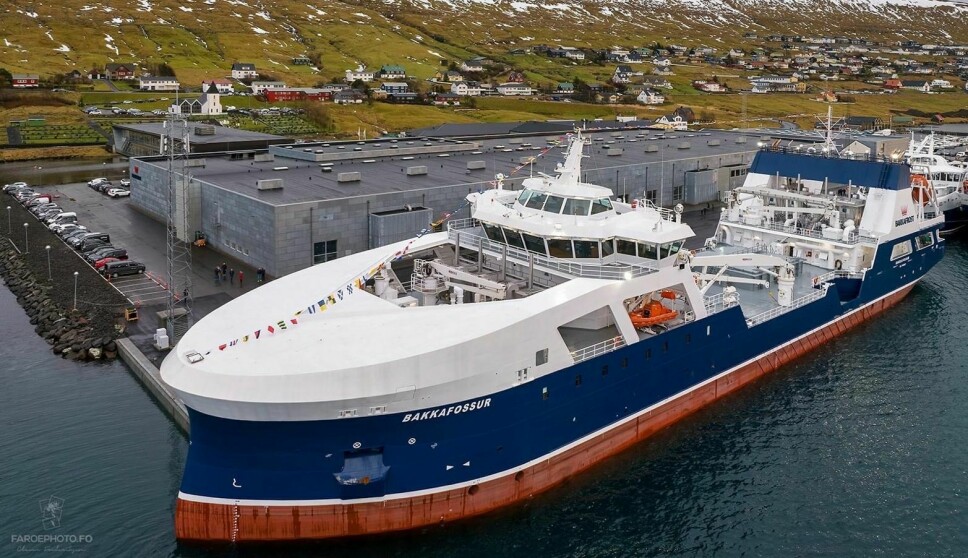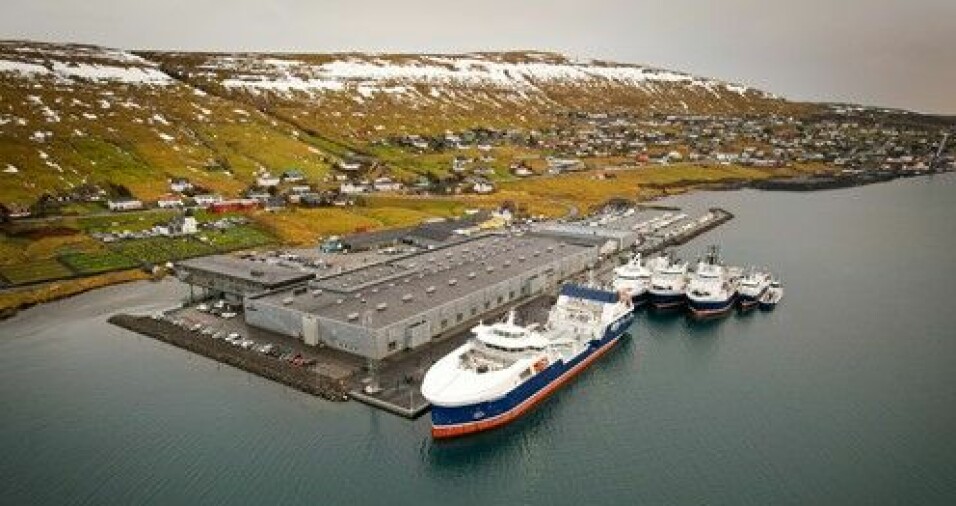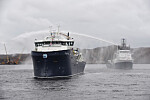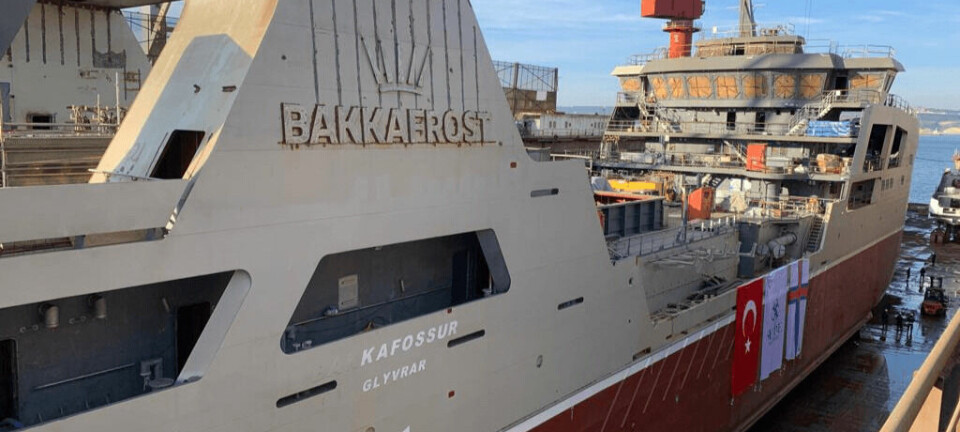
Bakkafrost welcomes giant wellboat
Hybrid-power vessel is a huge step towards both offshore farming and more sustainable operations, says Faroes and Scotland salmon farmer
mFaroese salmon farmer Bakkafrost has taken officially welcomed one of the world’s largest wellboats, the Bakkafossur, to its fleet.
The 109-metre-long vessel, which was built by Sefine Shipyard in Turkey, can carry up to 1,000 tonnes of live salmon. Construction started in the summer of 2020 and was completed last month.
Its four wells have a total capacity of 7,000m³ of sea water and other tanks can hold 3,000m³ of fresh water produced on board.
In addition to the five diesel-electric engines, the vessel is equipped with large batteries, ensuring an approximately 20% increase in energy efficiency. The strategic placement of the engines on the top deck secures the opportunity for a swift change to sustainable energy solutions when such are available on the market, said Bakkafrost.

Reverse osmosis
The vessel is equipped with reverse osmosis technology that can produce 6,000 m³ of freshwater a day, adding significant freshwater treatment capacity to Bakkafrost’s operations in the Faroe Islands.
“Treating salmon with freshwater is an efficient way to rinse the gills, restore gill health and ensure more robust and healthy growth,” Bakkafrost said on its website.
In addition, Bakkafossur will be equipped with an FLS de-lousing system, increasing biosecurity in line with Bakkafrost’s sustainability strategy.
The vessel is also prepared for offshore farming.
Sustainable protein
A reception for the boat was held Bakkafrost’s headquarters in Glyvrar on Saturday. Guests included Faroes prime minister Aksel V Johannesen and other government representatives.
In his speech at the reception, Bakkafrost chief executive Regin Jacobsen said: “We need to see an increase in the supply of sustainable protein. Aquaculture and salmon farming in particular is regarded as one of the best solutions for sustainable food production when considering sustainability in the broadest sense. The Faroe Islands offer many opportunities – thus it is of vital importance that the will, skills and regulations facilitate the utilisation of these opportunities. With Bakkafossur, we take a huge step towards both offshore farming and more sustainable operations.
“Our vision for the Faroe Islands is to increase our production output significantly to increase the general supply of sustainable ocean food, contributing to the sustainable transformation of the world’s food system.”
Ronja Star

Bakkafossur’s arrival follows that of the Ronja Star to the company’s Scottish operations in November. The 87-metre long hybrid-power vessel, commissioned from the world’s biggest wellboat operator Sølvtrans in Norway, is equipped with an FLS mechanical sea lice removal system, and a reverse osmosis system to produce fresh water from sea water for freshwater treatment.
The Ronja Star has a well capacity of 4,000 m³, and is permanently stationed in Scotland.
Bakkafrost said the Ronja Star had been specifically built to handle fish with care, while increasing biosecurity in line with its sustainability strategy, which will see an increase in the use of freshwater treatments across its marine sites on the West Coast of Scotland.
Bakkafrost Scotland has placed a high priority on freshwater treatment after experiencing continuing problems with amoebic gill disease (AGD), which has also impacted other farming companies.























































